Our Members Asked:
Could taking vitamin C (500 mg), CoQ10, grape seed extract, fish oil, vitamin D3/calcium/magnesium/zinc interfere with taking beta-sitosterol with dinner?
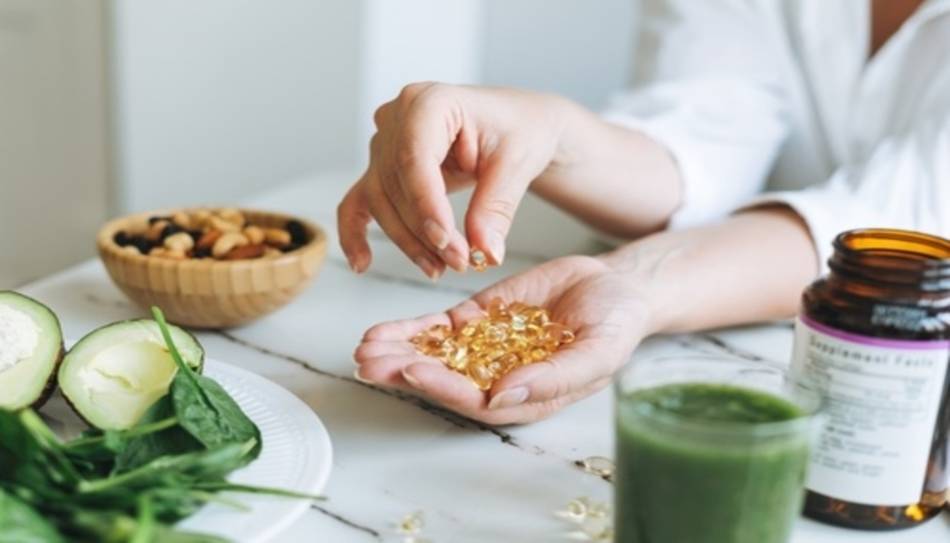
Answer:
Taking CoQ10, Fish Oil, & Vitamin D with Beta-sitosterol
CoQ10 (as well as ubiquinol, its active form), vitamin D, and the omega-3 fatty acids in fish oil are all fat-soluble and best absorbed with a meal containing fats, including oils (Frei, Proc Natl Acad Sci U S A. 1990; Maki, Curr Opin Clin Nutr Metab Care 2019; Dawson-Hughes, J Acad Nutri and Dietetics 2014). So, it is good that you are taking those with dinner – a meal that typically has the most fat. If you are taking beta-sitosterol to lower cholesterol, it should also be taken with meal, as it works in the gut by competing with cholesterol in food and bile for absorption. There is some concern that beta-sitosterol interferes with absorption of fat-soluble nutrients when taken together (which is unfortunate, since these are all best taken with a meal), but studies suggest that reductions in nutrient absorption are modest (Baumgartner, Eur J Nutr 2017; Goncalves, Mol Nutr Food Res 2011).
See our CoQ10 and Ubiquinol Supplements Review for more information about the best way to take CoQ10, as well as other potential interactions with CoQ10.
Also see our Fish Oil Supplements Review and Vitamin D Supplements Review for more information about the best way to take these supplements, and potential interactions with fish oil and vitamin D.
Below are several other concerns and supplement interactions to consider when taking this combination of supplements.
Concern With High-Dose of Vitamin C
You may want to cut back on the vitamin C. The required daily intake for adults is only 90 mg. Taking 500 mg or 1,000 mg may actually reverse vitamin C’s ability to reduce the risk of cataracts (Rautianinen, Am J Clin Nutr 2010) and blunt beneficial changes which occur during endurance and resistance (strength) training (Paulsen, J Physiol 2014) as discussed in the Concerns and Cautions section of our Vitamin C Supplements Review.
Vitamin C, Grape Seed Extract, and High Blood Pressure
If you have high blood pressure, be aware that one study found the combination of vitamin C and oligomeric proanthocyanidin complexes, or OPCs (the active component of grape seed extract) to increase blood pressure (Ward, J Hypertens 2005).
Calcium Absorption: The Best Way to Take Calcium from Supplements
Be aware that the body can’t absorb more than 500 mg of calcium at a time (Institute of Medicine Dietary Reference Intakes 1997; Heaney, Osteoporos Int 1999), including any calcium you may be getting from your meal. So, if you are taking more than this amount, you may want to break up your calcium intake from supplements throughout the day. In addition, taking large doses of calcium and magnesium may interfere with the absorption of other minerals, such as iron and zinc (Cook, Am J Clin Nutr 1991; Wood, Am J Clin Nutr 1997). This is particularly important if you are prone to iron-deficiency, so take calcium (particularly if at a dose of 300 mg or more) at least 2 hours apart from an iron supplement or iron-containing meal. For more information about this, see the How to Take section of our Calcium Supplements Review.
Note: ConsumerLab.com staff is not able to regularly respond to requests from members to evaluate their supplement regimens. However, you can find details about the best way to take vitamins, minerals, and other supplements to maximize absorption, as well as potential interactions with other supplements, foods, and drugs, in the "ConsumerTips" and "Concerns and Cautions" sections of each of our Product Reviews.
Join today to unlock all member benefits including full access to all CL Answers and over 1,400 reviews.
Join NowAlready a member? Sign In Here.
Join now at www.consumerlab.com/join/

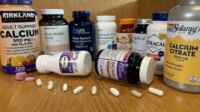
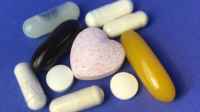
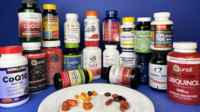

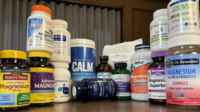
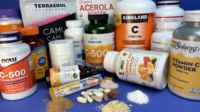
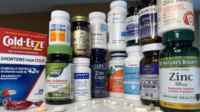





Submit your comment
This feature is restricted to active members.
Join now to add comments and get all member benefits, including over 1,400 reviews.
Join NowAlready a member? Sign in here.